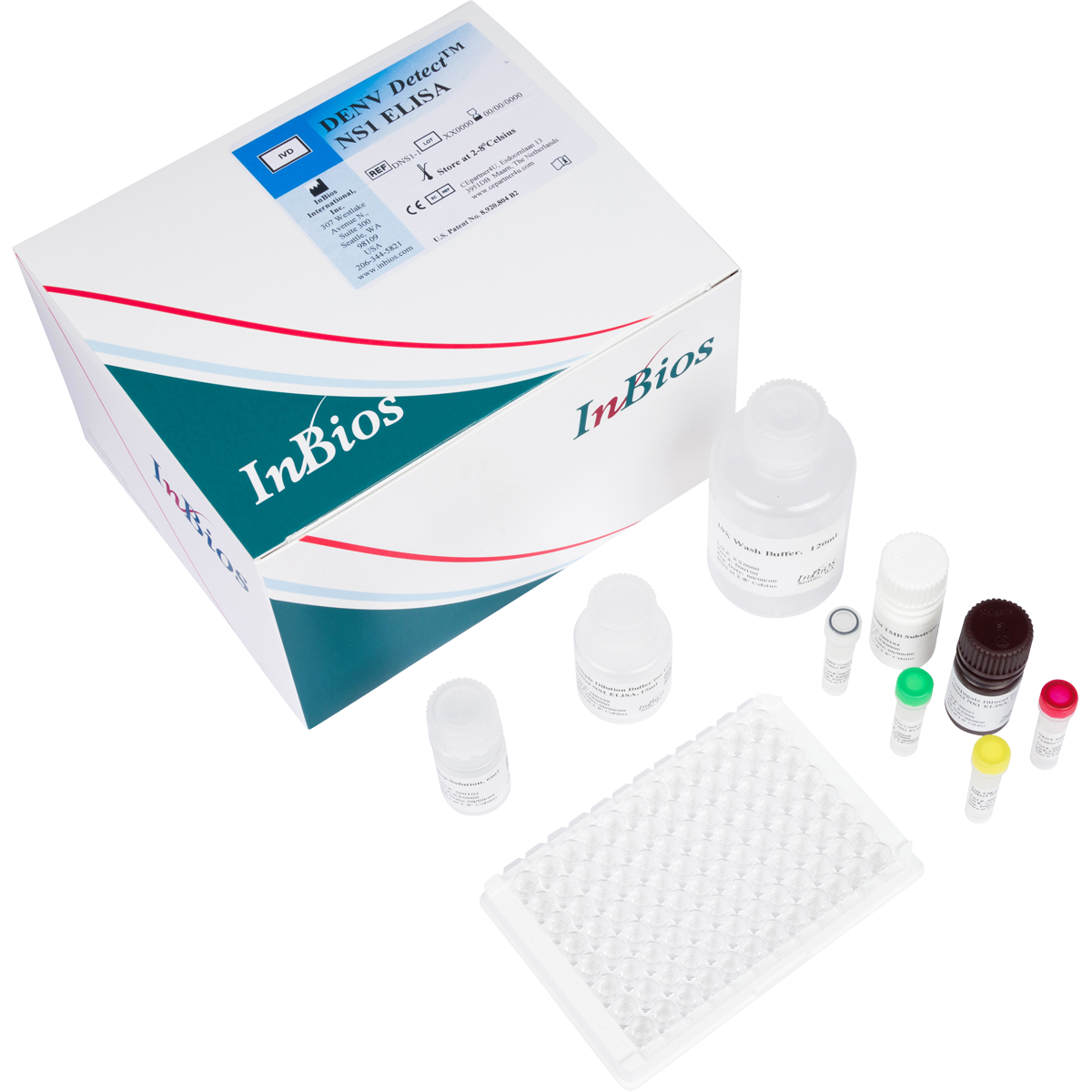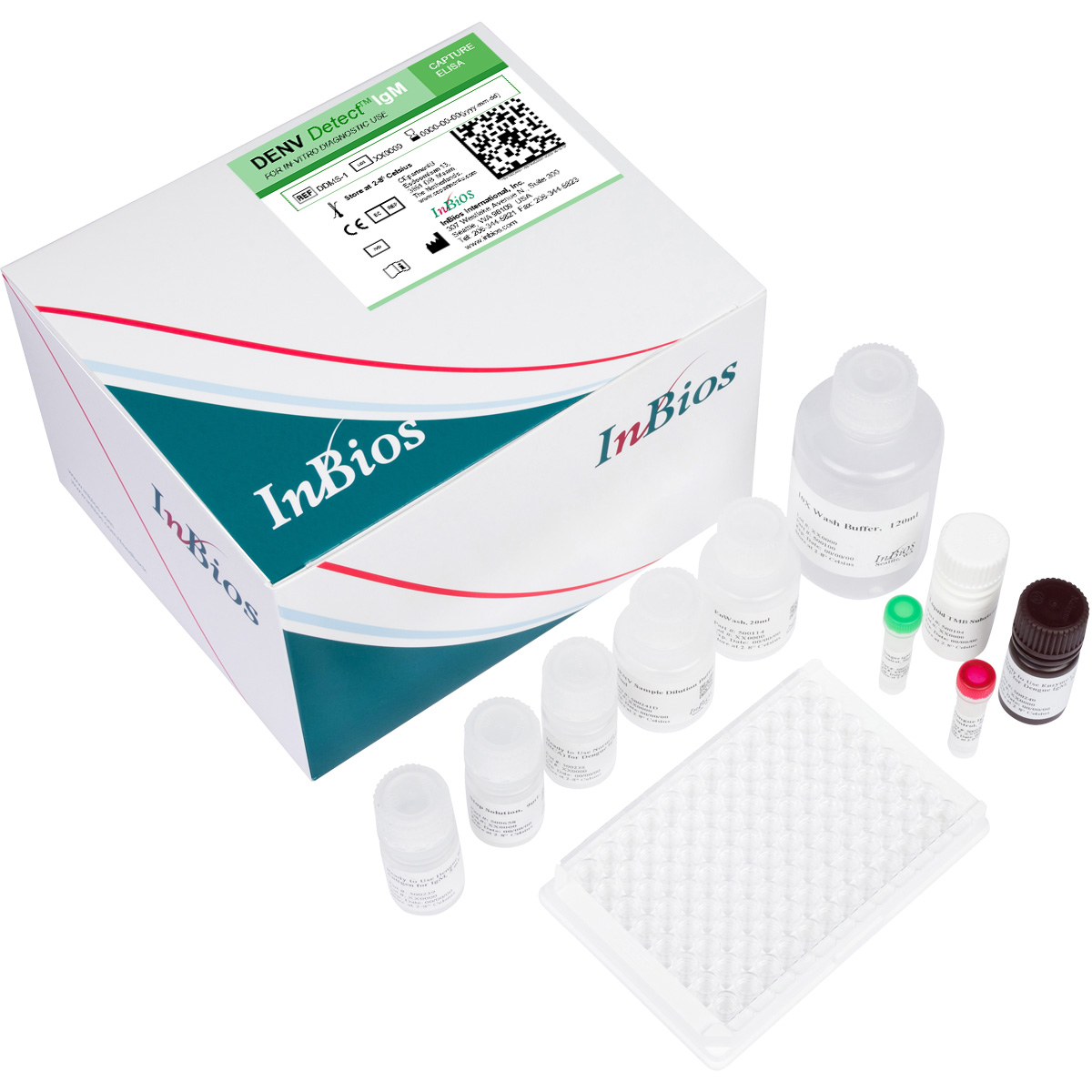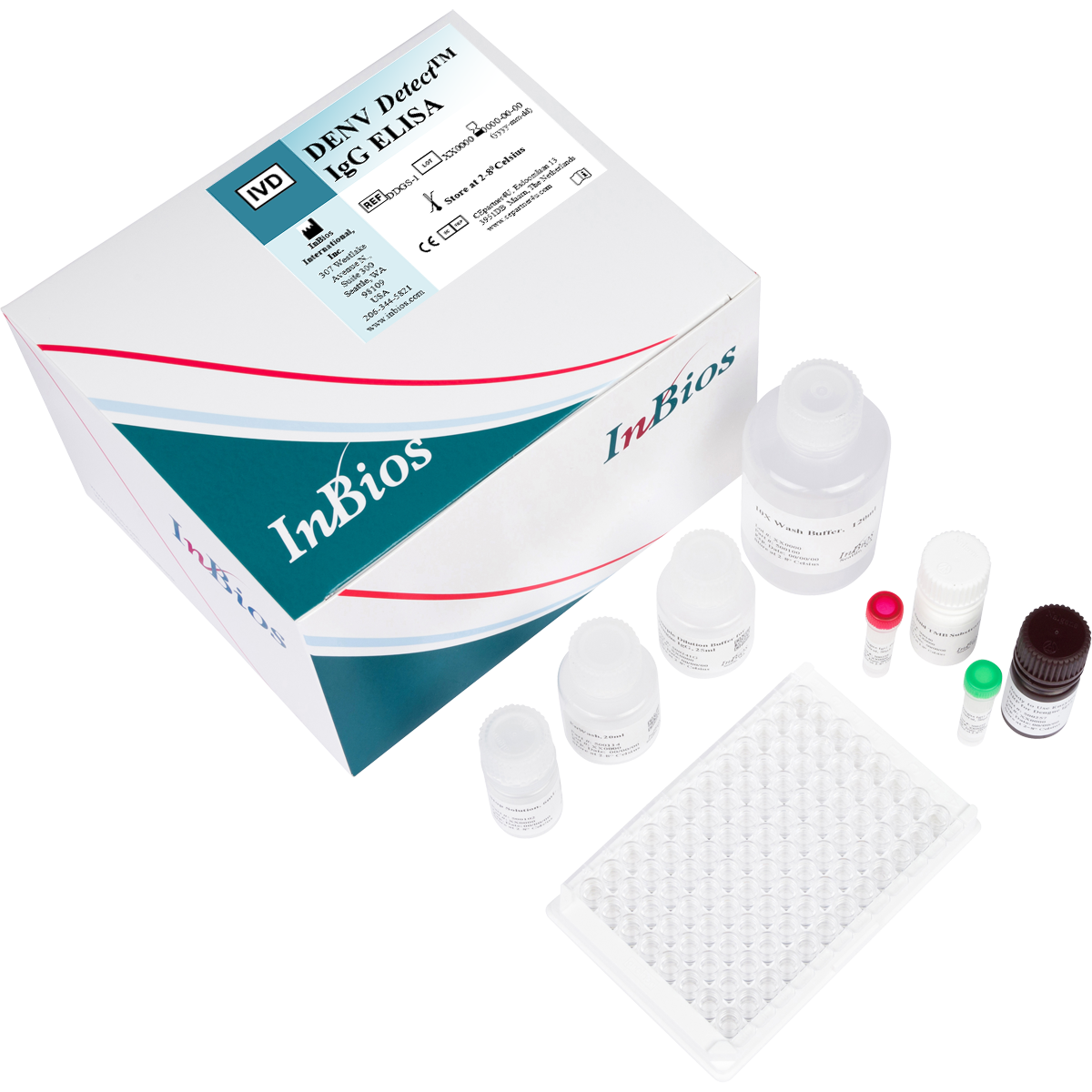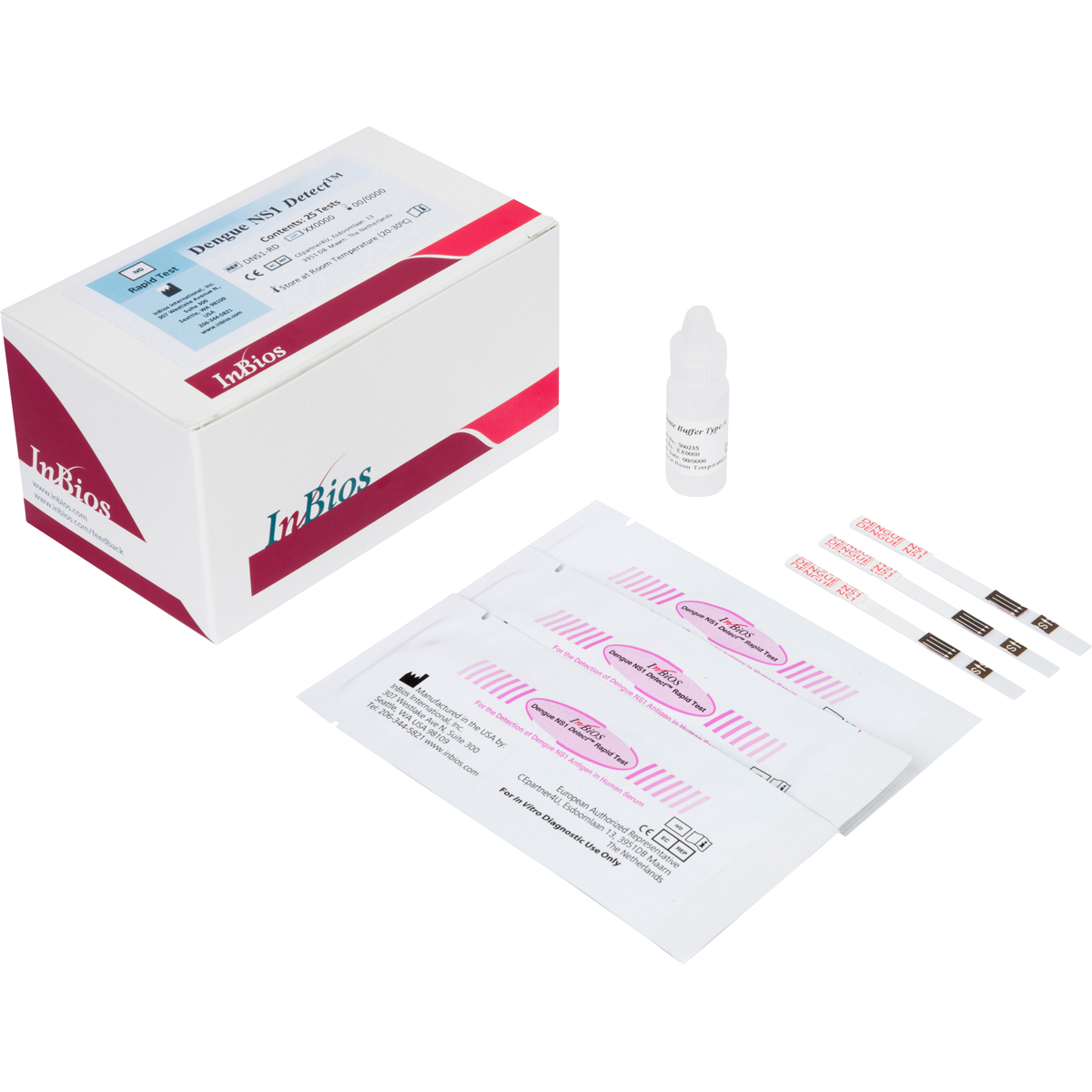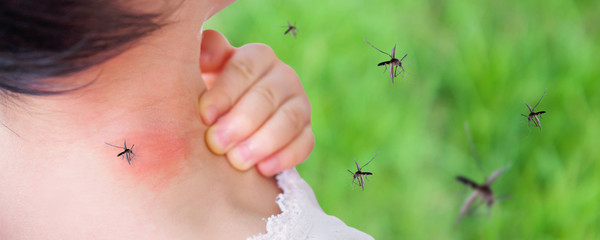
What Is Dengue?
Dengue is a viral infection spread to humans through the bite of infected mosquitos from one or two species, Ae. aegypti or Ae. albopictus. The CDC reports that up to 400 million dengue infections occur each year. While many of these infections are asymptomatic or result in mild illness, the dengue virus can cause more severe disease and even death. A person can be infected with dengue multiple times in their life. Those who are re-infected are at greater risk of severe dengue. Early detection can greatly lower fatality rate of severe dengue.
Epidemiology
The global incidence of dengue has grown dramatically around the world in recent decades. WHO documented a ten-fold surge over the past two decades, with reported cases increasing from 505,430 in 2000 to 5.2 million in 2019. The year 2019 marked an unprecedented peak, with reported instances spreading across 129 countries. After a slight decline of cases during the COVID-19 pandemic, dengue cases surged globally in 2023 reaching a historic high of over 6.5 million cases. The disease is now endemic in more than 100 countries and is spreading well beyond its normal areas of transmission in the tropics and sub-tropics. In 2024, dengue reached record numbers in Central and South America, nearly tripling to a record high with more than 12.6 million cases recorded. The spread of dengue can be attributed to several factors, including climate change, increased urbanization and mobile populations.
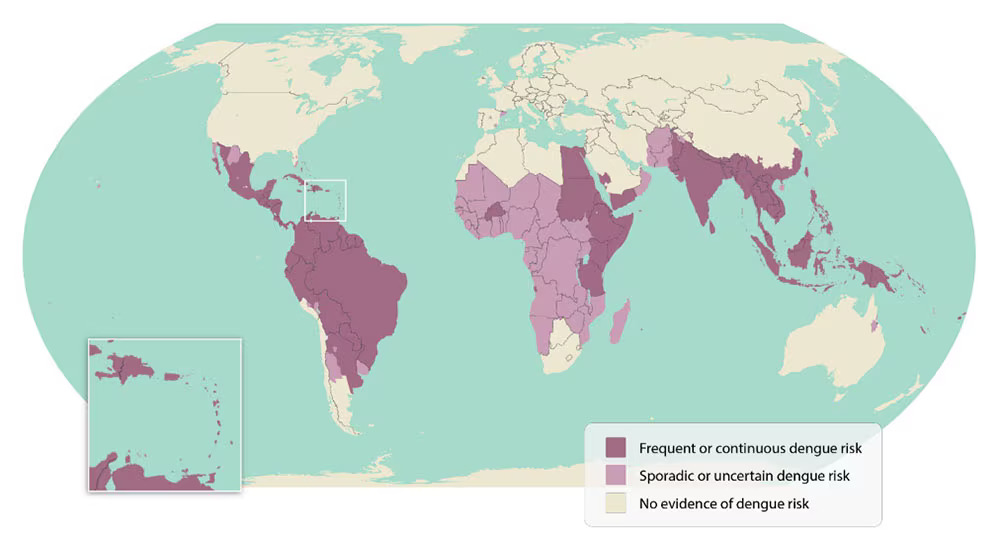
CDC Data for 2024. https://www.cdc.gov/dengue/areas-with-risk/index.html
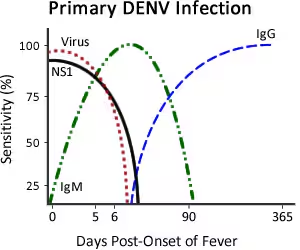
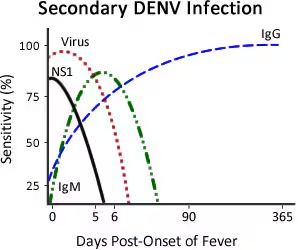
Diagnosing Dengue
Fast, accurate diagnosis of dengue is key for proper medical care, surveillance, outbreak control and research activities. For acute dengue diagnosis, the CDC recommends that clinicians order NS1 and IgM tests or NAAT and IgM tests. NS1 antigen testing is recommended to determine dengue infections during the first 7 days of illness. Tests for NS1 can be as sensitive as molecular tests during the first 0-7 days of symptoms. A positive NS1 test result confirms dengue virus infection without providing serotype information. IgM antibody testing can identify most recent dengue infections after day 3 of illness. In addition, IgG tests may detect antibodies from dengue infections or other flavivirus infections that occurred in the past.
CDC Dengue Clinical Case Management.
Products
InBios is at the forefront of developing and manufacturing reliable dengue diagnostics to meet the needs of the world market. Our Dengue NS1 ELISA & Dengue IgM ELISA tests are FDA-cleared and meet current CDC guidelines for testing. Explore our dengue product line below, or contact our sales team for more information.
Dengue News Alerts
- Japanese encephalitis and other mosquito-borne viruses likely to rise after record-breaking Queensland rain – April 4, 2025
- Ongoing Risk of Dengue Virus Infections and Updated Testing Recommendations in the United States – March 18, 2025
- Philippines officials offer cash for mosquitos amid rise in dengue cases – Feb 20, 2025
Publications/References
InBios’ dengue products are often evaluated with results outlined in scientific publications.


